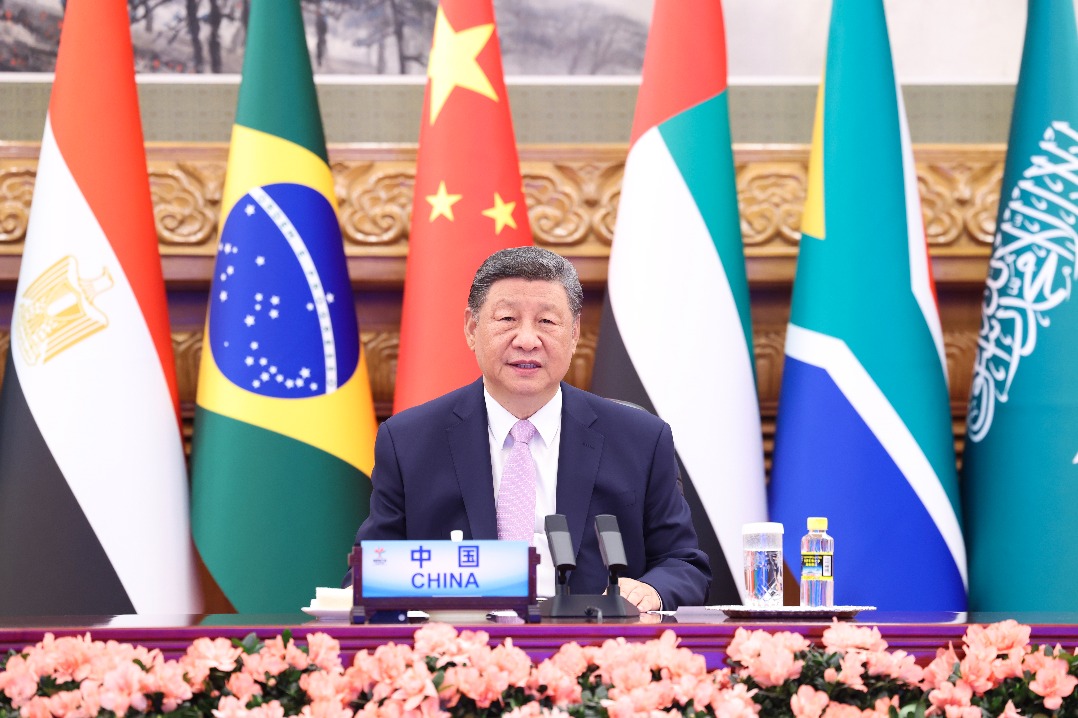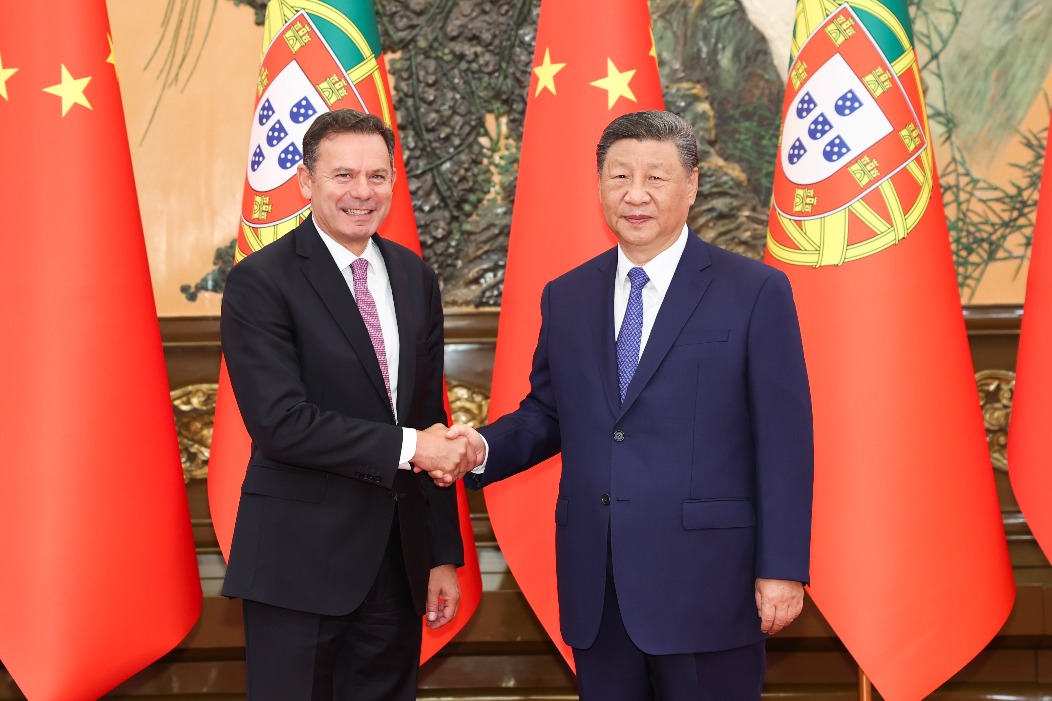Apt response


Countries adhering to six principles would reduce the global governance deficit, which is an imperative need
President Xi Jinping has mentioned on multiple occasions that changes of the world, of the times, and of history are unfolding in unprecedented ways, and the world once again stands at a historical crossroads.
Amid these changes, four major deficits have emerged: a peace deficit, development deficit, security deficit and governance deficit. The global governance deficit, represented by challenges such as climate change, degraded ecosystems, and the liberalization and facilitation of trade and investment, has become a critical variable concerning the survival and prosperity of all humanity. "Humanity has a choice: cooperate or perish." That's the somber warning United Nations Secretary-General Antonio Guterres gave to the world at the 2022 UN climate conference, known as COP27. The remark reflects the global community's strong expectation for solutions to the governance deficit and shows that reducing the governance deficit is in the common interest of peoples of all countries.
In the face of increasingly severe and highly entwined global challenges, as well as the exacerbation of the global governance deficit, it is imperative to foster a universal consensus on the principles for global governance. Fair, reasonable and effective basic norms of global governance should be established to guide the resolution of global issues. The fairness of global governance is primarily reflected in the principle of sovereign equality and voluntary compliance. Its reasonableness is demonstrated through the principle of balanced rights and responsibilities and mutual benefit with compensation. Its effectiveness is manifested in the principle of giving priority to outcomes and emphasizing feedback on evaluation.
The first principle is sovereign equality. Sovereign equality has been a crucial norm governing international relations for centuries and has become a basic tenet upheld by the UN and its affiliated agencies. The essence of sovereign equality lies in treating all countries equally, regardless of their size, strength or wealth, ensuring that rules apply uniformly and that rules binding other nations also bind each nation itself. This principle holds fundamental significance in ensuring the normal development of international relations, promoting peace and cooperation, and particularly in safeguarding the legitimate rights and interests of developing countries. Only by adhering to the principle of sovereign equality can the equality of rights, opportunities and rules among nations be ensured.
The second principle is voluntary compliance, which refers to the fact that global governance rules must have the consent of the nations they are intended to bind before being established and implemented. This principle has gained international recognition in the field of global climate governance and has proved to be viable to a certain degree. The Paris Agreement established a new model of responsibility sharing based on Nationally Determined Contributions, which ensures that all parties actively fulfill their shared responsibilities in addressing climate change. At the same time, it reflects the differences in capabilities through voluntary commitments to reduce emissions, thereby fully mobilizing the initiative of countries.
The third principle is balanced rights and responsibilities. Currently, an imbalance in rights and responsibilities is prevalent in certain areas of global governance, and this is the primary cause of the persistent global governance deficit. The majority of existing global governance rules and mechanisms were established under the leadership of developed economies, and are therefore either more favorable to them or even designed to suppress competitors. In such a system, many emerging and developing economies are unable to enjoy fair treatment. Therefore, the principle of balanced rights and responsibilities must be upheld as a universally recognized principle of global governance.
The fourth principle is mutual benefits with compensation. While the principle of sovereignty ensures equality among nations, it can also lead to externalities. In other words, domestic policymaking, which is a nation's internal affair, may negatively impact the welfare of other countries. For example, the Amazon rainforest, which is often referred to as the "lungs of the world", has 80 percent of its area located within Brazil, and how it is developed and utilized is a matter of Brazil's internal affairs. However, over the past few decades, the Amazon rainforest has shrunk by 31 percent, reaching a point where strict protection is essential. It would be neither fair nor feasible for Brazil alone to sacrifice its development for the sake of forest conservation. Therefore, it is critical to build a mechanism that can compensate countries that bring benefits to the entire world at their own expense.
The fifth principle is giving priority to results. Slow action, inefficiency, and even making empty promises have long plagued global governance. On the one hand, the principle of giving priority to results refers to nations working together to figure out practical solutions to global challenges. On the other hand, it requires coordinated and efficient actions by countries, with reward and punishment mechanisms to enforce global governance rules. The principle of prioritizing outcomes is an inevitable choice for ensuring the long-term success of global governance.
The sixth is the principle of evaluation and feedback. Many global issues are fraught with uncertainty and unpredictability, and improving the global governance mechanisms is a long-term process. It is of significant value to regularly evaluate the performance of countries participating in global governance and give feedback to the countries involved, as it helps to timely address obstacles in global governance and formulate new solutions. Evaluating performance and giving feedback can be conducted by multilateral institutions, independent think tanks, commercial organizations, or experts and academics.
The above-mentioned six principles embody China's philosophy of global governance. They call for extensive consultation, joint contribution and shared benefits, practicing true multilateralism and the democratization of international relations. They are aimed at promoting a just, reasonable and effective global governance system and at building a community with a shared future for humanity.
The author is an academic member at the Chinese Academy of Social Sciences and dean of the School of International Politics and Economics at the University of Chinese Academy of Social Sciences. The author contributed this article to China Watch, a think tank powered by China Daily. The views do not necessarily reflect those of China Daily.
Contact the editor at editor@chinawatch.cn.

































